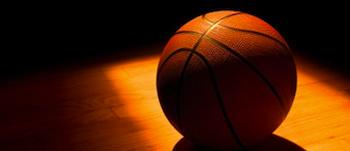- MENU
- HOME
- SEARCH
- WORLD
- MAIN
- AFRICA
- ASIA
- BALKANS
- EUROPE
- LATIN AMERICA
- MIDDLE EAST
- United Kingdom
- United States
- Argentina
- Australia
- Austria
- Benelux
- Brazil
- Canada
- China
- France
- Germany
- Greece
- Hungary
- India
- Indonesia
- Ireland
- Israel
- Italy
- Japan
- Korea
- Mexico
- New Zealand
- Pakistan
- Philippines
- Poland
- Russia
- South Africa
- Spain
- Taiwan
- Turkey
- USA
- BUSINESS
- WEALTH
- STOCKS
- TECH
- HEALTH
- LIFESTYLE
- ENTERTAINMENT
- SPORTS
- RSS
- iHaveNet.com
By Marc Isenberg

College basketball players aren't "amateurs" anymore -- if they aren't scholars either, so be it
Marc Isenberg is an adviser to high school and college athletes and author of
The Student Athlete Survival Guide
and
Money Players
.
Asked if he had earned a degree while playing basketball at
Freshman ineligibility would be a major step in the right direction. Disqualifying teams with lousy graduation records looks good, too -- on paper, not in practice.
The
Freshman ineligibility rules require an athlete to maintain good academic standing for at least three semesters to be eligible to play for one season. This would weed out players who have no interest in academics.
On a more positive note, it would help lay the foundation for academic success. The first year in college -- a difficult adjustment period for many -- is a critical time to develop skills and habits necessary to perform academic work that leads to graduation. Freshmen need to go to class and have time to study, not fly around the country to away games. As Duncan, who played basketball at
Disqualifying teams with poor graduation rates, on the other hand, would penalize current players for failures of former players. And if the aim is to put athletes in class and improve graduation rates, why limit it to March Madness? Why not play fewer regular-season games so student athletes miss less class time?
Unfortunately, Duncan's prescription does not address the root cause of the graduation problem: There is no way to turn back the clock to the
The
Duncan blamed the low graduation rate among the 3 percent on "a small minority of renegade coaches and institutions." However, when we focus on the 13,000 revenue-producing college athletes rather than 410,000 total student athletes, the proportion of "renegades" is significantly higher.
Of course, a relatively small number of players don't graduate because they leave early to play professionally. From their point of view, it's an excellent trade-off. They can always go back to complete their education, and then they won't need financial aid or be distracted by endless hours of practice. Unfortunately, a far larger number neither graduate nor make it to the
The NCAA defines an "amateur" student athlete as someone who "engages in a particular sport for the educational, physical, mental, and social benefits derived therefrom and to whom participation in that sport is an avocation." "Avocations" don't produce multimillion-dollar salaries for coaches and multibillion-dollar TV contracts. The economic incentives to attract superstars and keep them eligible are so strong that no minor reforms and no amount of policing will prevent athletic directors, coaches, and athletes from gaming the system.
It's time to give up the pretense. Compensate college athletes in revenue-producing sports for their work, beyond the scholarships most receive. If schools don't pay athletes, others will. They are called boosters and sports agents. Give athletes the right to market their own names and images, a right now monopolized by the NCAA and its member institutions.
The NCAA clings to "amateurism" despite the impossibility of combining amateurism with the generation of billions of dollars of revenue. Amateurism was once the Olympic ideal as well. Yet we just saw a match for the gold medal in hockey with both teams composed entirely of
It's time to admit that big-time college basketball and football are professional -- the equivalent of
Read why the
Available at Amazon.com:
The Student Athlete Survival Guide
Money Players: A Guide to Succeed in Sports, Business & Life for Current and Future Pro Athletes
Copyright © U.S. News & World Report
NCAA Should Admit Its March Madness Players Are Professionals